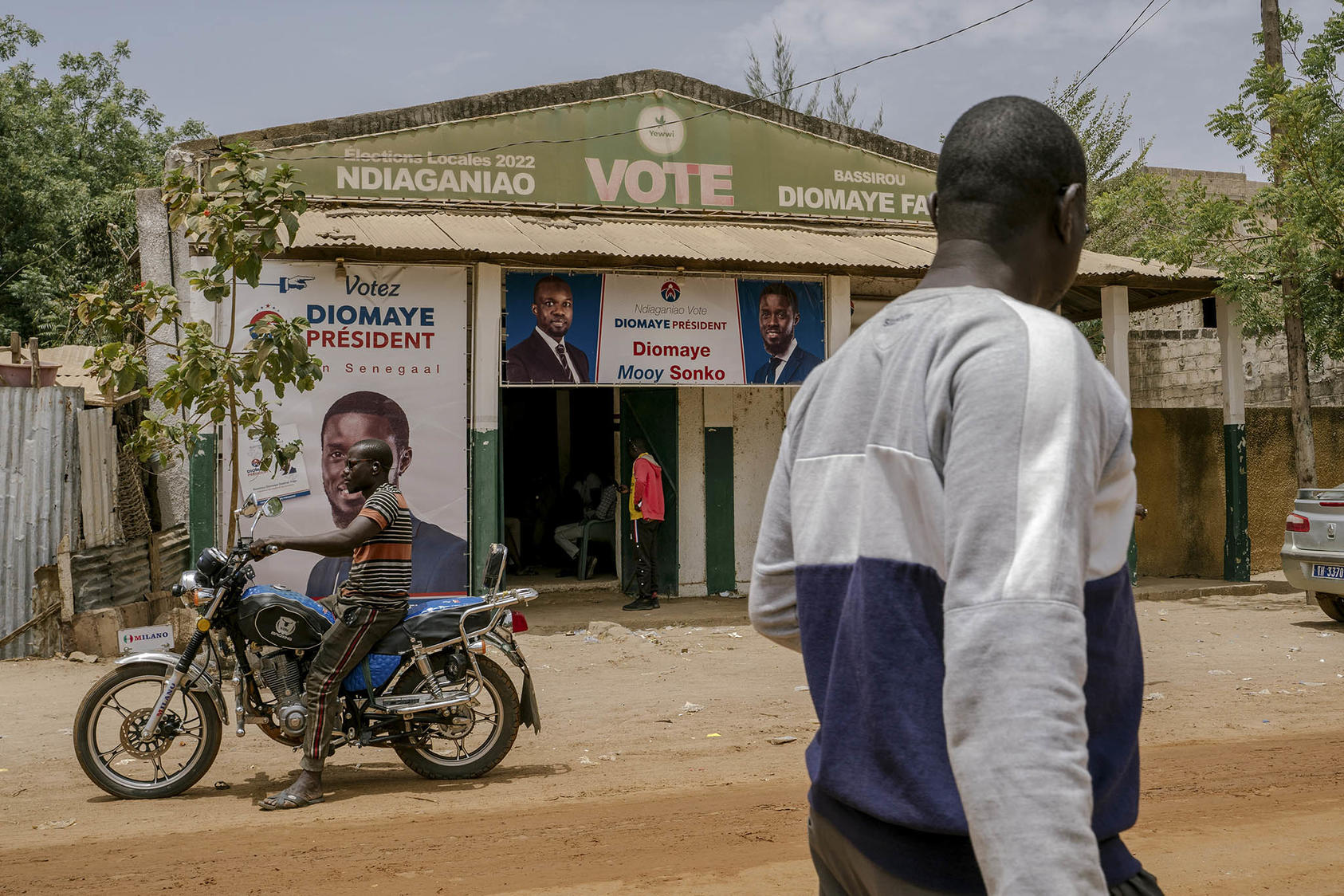
Posters of Bassirou Diomaye Faye at a local branch of his party in Ndiaganiao, Senegal, on March 26, 2024. Senegal’s president-elect, Bassirou Diomaye Faye, was barely known outside his rural hometown until two months ago. (Carmen Abd Ali/The New York Times)
The West African media on August 18, 2025, focused on pressing issues ranging from governance and security to environmental and social initiatives across the region.
In Senegal, PressAfrik reported that lawyer Mame Adama Guèye, appearing on RFM’s Grand Jury, called for “an audit of public funds” allocated to flood control.
He highlighted that “nearly a thousand billion” CFA francs have been spent without yielding lasting results, emphasizing that “the Constitution guarantees citizens the right to a healthy environment.”
Mali’s press also spotlighted political and security matters. Maliactu covered a tribute to Tiébilé Dramé in Magnambougou, attended by former presidents Alpha Oumar Konaré and Dioncounda Traoré.
Meanwhile, Bamada.net quoted Minister of Reconciliation Ismaël Wagué saying, “the state’s fight is not aimed at a community, but at insecurity and extremism,” during a meeting convened by Sékou Bolly that brought together over a hundred Fulani leaders.
In Guinea, Africaguinee reported that Prime Minister Amadou Oury Bah confirmed the withdrawal of “more than 300 mining permits” as part of a land registry cleanup.
He added that “a summary note will be sent to the President of the Republic” to consider adjustments, stressing the intent “to give Guinean entrepreneurs a central role.”
Togo faced a surge in political violence. Icilome reported that Kao Pouwédéou, cantonal president of the Togo Espoir movement in Lassa, was seriously injured in a machete attack. Party president Ricardo Agouzou denounced “a resurgence of attacks against activists” and called for a judicial inquiry.
Electoral matters drew attention in Ivory Coast, where Abidjan.net noted the Independent Electoral Commission (IEC) had published the final electoral list on June 4 ahead of the presidential vote on October 25. The opposition criticized the timing, arguing that postponing the annual revision until after the election “undermines electoral credibility.”
Security and social issues featured prominently in Nigeria and Ghana. Punch Newspaper reported the arrest of Okon Asuquo Udo in Akwa Ibom State, a gang leader implicated in multiple kidnappings. Pulse Ghana covered the indefinite closure of Bolgatanga Technical Institute (BOTECH) following student riots, citing the burning of the library and principal’s office and the authorities’ justification: “the need to ensure security and allow for a thorough investigation.”
Elsewhere, The Fatu Network in Gambia highlighted Abubacarr Ceesay, a student and principal, who credited “discipline and perseverance” for his dual success in Quranic and conventional studies. In Burkina Faso, the Burkina News Agency reported that National Tree Day in Boulsa saw the planting of 2,500 medicinal plants, with the Provincial High School Alumni Union pledging to “maintain the plants and support the rehabilitation of infrastructure.”
Across the region, West African media coverage underscores the persistent challenges of governance, security, and social development, while highlighting community resilience and environmental awareness.



